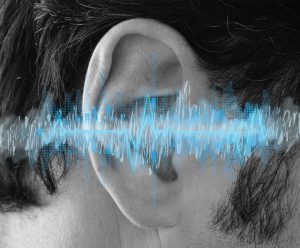
What Are the Causes of Tinnitus?
Tinnitus is categorized as being either pulsatile or nonpulsatile.
Nonpulsatile tinnitus – ringing in the ears not accompanied by any type of rhythm – is most common. It can be caused by a variety of conditions including:
- Presbycusis (age-related hearing loss).
- Noise exposure.
- Impacted earwax.
- Otosclerosis (stiffening of the bones in the middle ear).
- Meniere’s disease.
- TMJ disorders.
- Ototoxic medications.
- Thyroid conditions.
- Head or neck trauma.
- Acoustic neuromas.
Pulsatile tinnitus – hearing the sound of your own pulse in your ear – is fairly rare. It is caused by abnormal blood flow within the vessels of the neck, head, or inside the ear. Possible causes include:
- Fluid in the middle ear.
- Ear infections.
- High blood pressure.
- Head and neck tumors.
- Blocked arteries.
- Vascular abnormalities such as AV malformations or aneurysms
How Is Tinnitus Treated?
Tinnitus can’t be cured, but there are treatments that make it less of a distraction. The approach taken depends on the underlying condition responsible for the ringing in your ears. Sometimes, simple steps like removing built-up earwax or switching to a new medication can markedly decrease symptoms.
Others benefit from noise suppression therapy or masking techniques designed to cover up the ringing noise. White noise machines, fans, air conditioners and humidifiers are all popular, easy to use options.
Tinnitus retraining devices, which rely on patterned tones, are a newer technique that has proven beneficial to many patients.
Hearing aids are also helpful for people who suffer from tinnitus. Tinnitus is most often a symptom of hearing loss. Those who wear hearing aids find by amplifying environmental sounds, the internal tinnitus is often not heard. Additionally, hearing aids can be programmed with a tinnitus masking program. Tinnitus programs use sounds generated from the hearing aid to mask out the head noise (tinnitus) and give your brain soft relaxing input to listen to.
Call Comprehensive ENT at (804) 228-4480 for more information or to schedule an appointment.


